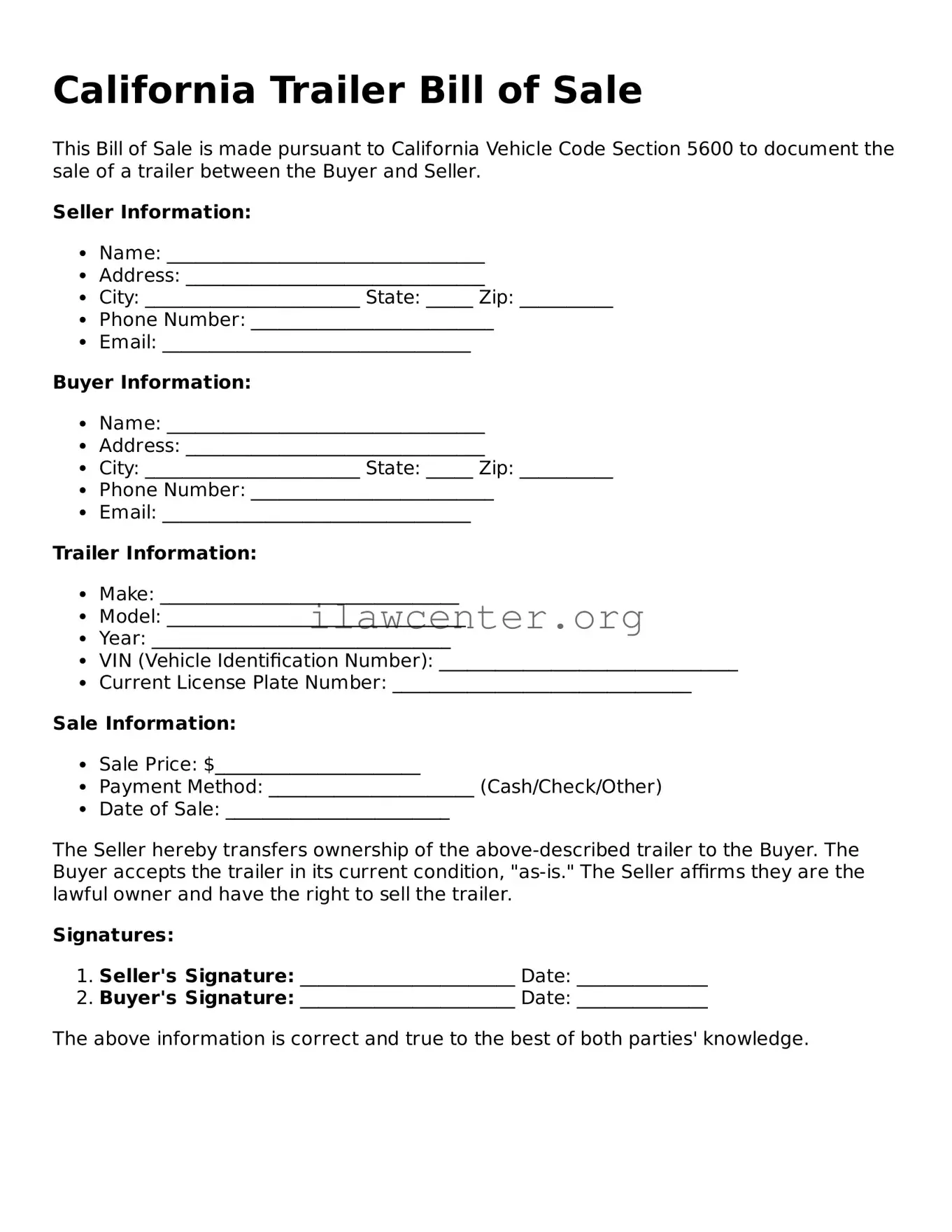Instructions on Utilizing California Trailer Bill of Sale
After obtaining the California Trailer Bill of Sale form, you are ready to provide the necessary details for the transaction. Completing this form is crucial for the legal transfer of ownership between the seller and the buyer. Follow these steps to ensure accurate and complete information is recorded.
- Begin by entering the date of sale at the top of the form. This is the day when the transaction takes place.
- Next, fill out the seller's information. Include the seller's full name, address, and contact details.
- Proceed to enter the buyer's information. Write the buyer's full name, address, and contact details.
- Describe the trailer being sold. Include important details such as the make, model, year, and Vehicle Identification Number (VIN).
- Specify the purchase price in the designated section. Clearly state the total amount agreed upon for the sale.
- If applicable, indicate any trade-in value or other considerations that may apply.
- Both the seller and buyer must sign and date the form. Ensure all signatures are legible to avoid any issues.
Once the form is completed, make copies for both the seller and buyer. This documentation will serve as proof of the transaction. The buyer may then proceed to their local Department of Motor Vehicles (DMV) to complete the registration of the newly acquired trailer.
